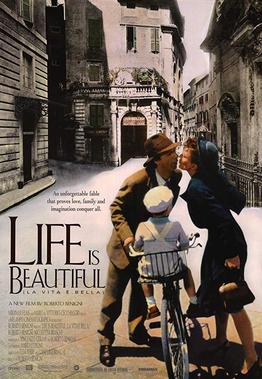- In what area do you think you made your biggest improvements in English Language Arts?
I think that this quarter I have improved the most with getting my work done on time. Especially during 2nd Quarter when we were reading To Kill A Mockingbird and answering the questions, I would forget to fill in the graphic organizer or answer a question, and so I would have to go to working lunch. This quarter, I think that I have really improved and I haven't really had to go to working lunch. I have been trying to make sure to do my homework right when I get home from school instead of procrastinating until 10:00, like I sometimes did in 2nd Quarter.
- What has been the most challenging part of 3rd Quarter for you and what did/can you do to help overcome this?
The most challenging part of 3rd Quarter has been time management. I have been so busy lately that I don't have enough time to do everything that I need to do. Or I forget that I have to do something and don't give myself enough time to do it. Since my mom is running for school board and sometimes have to help out with that, and I have after school activities, sometimes it is hard to find time to do everything that I need to do. Also, when I get home, all I want to do is go on my phone and watch Netflix or Youtbe, but, I think that I have been doing a better job at turning my phone off and doing my homework first.
The most challenging part of 3rd Quarter has been time management. I have been so busy lately that I don't have enough time to do everything that I need to do. Or I forget that I have to do something and don't give myself enough time to do it. Since my mom is running for school board and sometimes have to help out with that, and I have after school activities, sometimes it is hard to find time to do everything that I need to do. Also, when I get home, all I want to do is go on my phone and watch Netflix or Youtbe, but, I think that I have been doing a better job at turning my phone off and doing my homework first.
- Where are you in your 40 Book Challenge?
For the 40 Book Challenge, I have read 30 books. I have read Harry Potter and the Cursed Child, Harry Potter and the Prisoner of Azkaban, Harry Potter and the Goblet of Fire, Harry Potter and the Sorcerer's Stone, and Harry Potter and the Chamber of Secrets by J.K Rowling. I also finished the Series of Unfortunate Events series by Lemony Snicket: The Hostile Hospital, The Carnivourous Carnival, The Slippery Slope, The Grim Grotto, The Penultimate Peril, and The End. A Tree Grows in Brooklyn by Betty Smith, Carry On by Rainbow Rowell, Wonder by R. J. Palacio, The Alchemyst by Michael Scott, Notes From A Midnight Driver by Jordon Sonnenblick, Turning 15 On The Road To Freedom by Lynda Blackmon Lowery, Echo by Pam Muñoz Ryan, Unstoppable by Tim Green, Scat by Carl Hiaasen, A Little Something Different by Sandy Hall, and Flipped by Wendelin Van Draanen. We, as a class have also read some books. To Kill A Mockingbird by Harper Lee, Of Beetles and Angels by Mawi Asgedom, and Night by Elie Wiesel. Most of the books that read this quarter have been for Battle of the Books, which is really helping with the 40 Book Challenge, and also getting me to read books that I normally wouldn't read.
For the 40 Book Challenge, I have read 30 books. I have read Harry Potter and the Cursed Child, Harry Potter and the Prisoner of Azkaban, Harry Potter and the Goblet of Fire, Harry Potter and the Sorcerer's Stone, and Harry Potter and the Chamber of Secrets by J.K Rowling. I also finished the Series of Unfortunate Events series by Lemony Snicket: The Hostile Hospital, The Carnivourous Carnival, The Slippery Slope, The Grim Grotto, The Penultimate Peril, and The End. A Tree Grows in Brooklyn by Betty Smith, Carry On by Rainbow Rowell, Wonder by R. J. Palacio, The Alchemyst by Michael Scott, Notes From A Midnight Driver by Jordon Sonnenblick, Turning 15 On The Road To Freedom by Lynda Blackmon Lowery, Echo by Pam Muñoz Ryan, Unstoppable by Tim Green, Scat by Carl Hiaasen, A Little Something Different by Sandy Hall, and Flipped by Wendelin Van Draanen. We, as a class have also read some books. To Kill A Mockingbird by Harper Lee, Of Beetles and Angels by Mawi Asgedom, and Night by Elie Wiesel. Most of the books that read this quarter have been for Battle of the Books, which is really helping with the 40 Book Challenge, and also getting me to read books that I normally wouldn't read.



